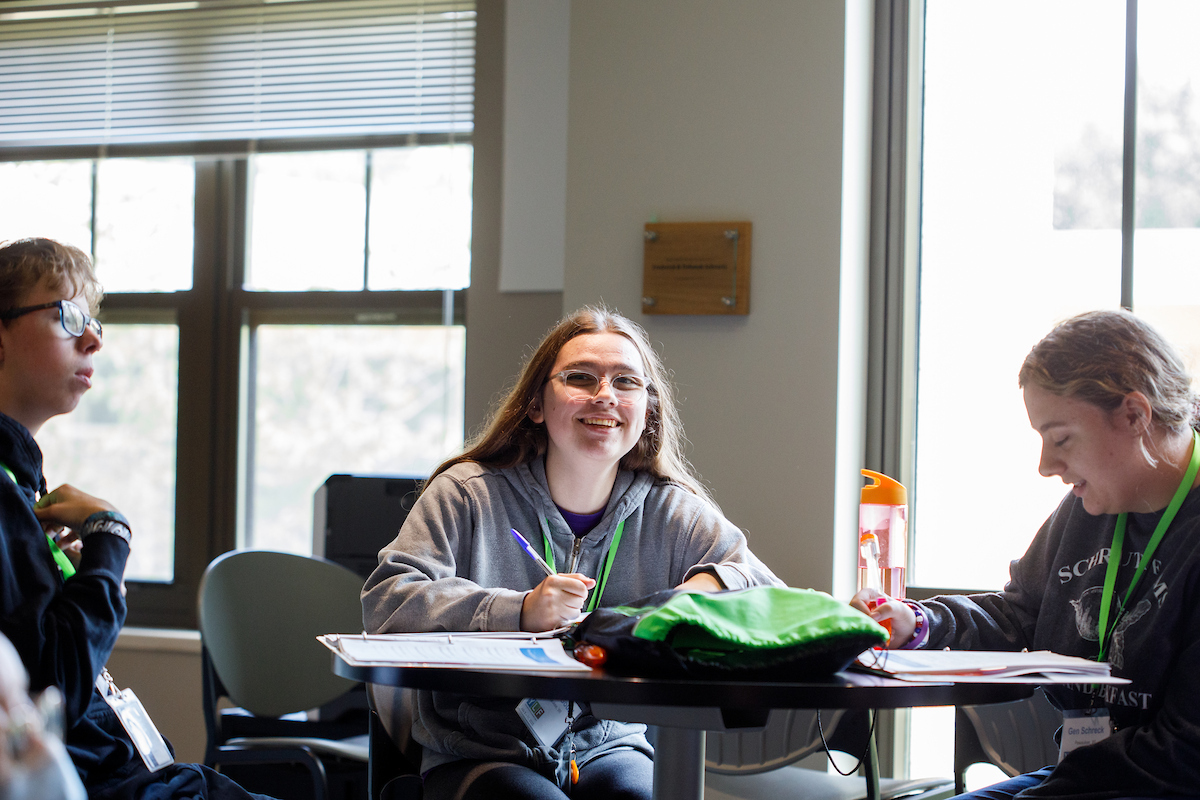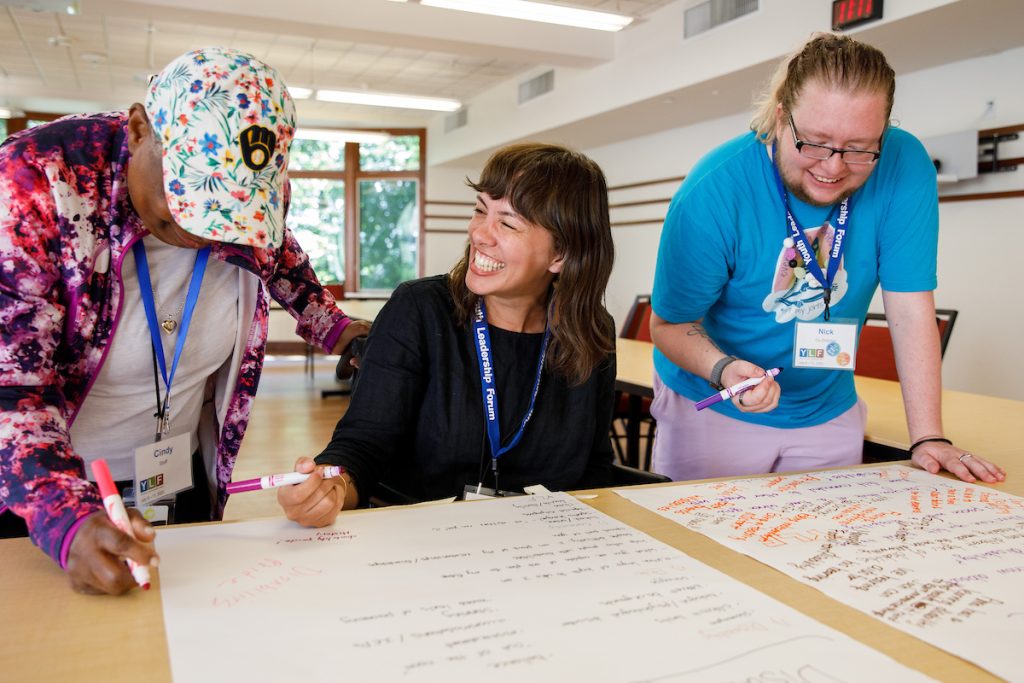By Laurel White
Brenna says she was 3 years old when she first knew about her autism.
“I’ve lived it,” she says. “This program helped me feel confident in it.”
Now 20 years old, Brenna is one of 25 young people from across Wisconsin attending the Wisconsin Youth Leadership Forum, a six-day residency program that aims to help youth with disabilities learn more about leadership, self-advocacy, and career awareness. Co-led by a School of Education faculty member, Carlyn Mueller, this year’s program is also supported by a community-based research grant from UW–Madison.
On day four of the program, Brenna is smiling, confident, and has clearly situated herself among her peers as outgoing, fun, and a champion of the event, which attendees affectionately call “YLF.”

“At home, I don’t see many people with disabilities,” Brenna says. “Being here makes me feel less alone.”
YLF offers its attendees — whose average age is 17 — a fruitful mix of academic and personal growth opportunities, from panel and small group discussions to an end-of-week talent show and a summer camp staple: a dance.
“You can see the development that takes place over the week,” says Mueller, an assistant professor in the Department of Rehabilitation Psychology and Special Education.
Mueller has co-led YLF for two years. She says the event offers many youth, including Brenna, one of their first opportunities to meet and meaningfully interact with other young people with disabilities.

“We provide the first experience around mentorship and what it’s like to have friends who have a similar experience,” she says.
The majority of the adult staff at YLF also have disabilities, which provides another unique opportunity for connection and growth. The adults, who serve as counselors and facilitators during the program, often speak about their personal and professional paths to success.
“It’s a vision into the future in that way for the youth,” Mueller says.
Organized small group discussions range from talks about living independently to developing personal leadership. Sara Park, a recent doctoral graduate from the Department of Rehabilitation Psychology and Special Education, facilitated multiple sessions, including one on career development after high school.
Park says she sees her work with YLF as “a profound privilege.”
“What makes it so special is the immediate trust the youth extend to us,” she says. “They open up about their deepest challenges and pain with incredible honesty and vulnerability. It’s humbling — and inspiring — to witness how these young delegates advocate for themselves, and how they begin stepping into leadership roles for the disability community, often after facing a lifetime of being underestimated by society.”
The event also includes a trip to the state Capitol Building to meet with lawmakers. Every YLF delegate brings an issue they care about to one-on-one meetings with their state representative and senator. They’re prepared with talking points — and an extra, YLF-given boost of tools and esteem.
“That’s a really powerful skill they’re developing, not only around their own self advocacy but advocacy in the community,” Mueller says.

Over her several years supporting the event, Mueller recalls watching shy delegates bloom into leaders. Last year, a delegate left the event and immediately attended a local town hall to testify about an issue important to them.
“That kind of practice is what we’re hoping to build,” she says.
Despite these marked successes, Mueller notes funding for future YLF programs could be in danger. The program, which is offered in 19 states across the country, is primarily funded through state developmental disability councils. In recent federal budget proposals, those councils have been projected to lose significant amounts of funding.
“This was looking like it might be the last year we could run the program,” Mueller says, noting the new grant support from UW–Madison helped stabilize efforts this year and next.
Beyond that, the future of the program is unclear.
“We’re kind of on the bubble in terms of funding,” she says. “This is a program that has all of these huge, positive outcomes and we are having to say year-to-year, ‘What is the feasibility of this?’”
Park stayed in Madison this summer to work at YLF before heading south to join the faculty at the University of North Texas. She couldn’t miss the opportunity for one more year of supporting and witnessing the blooming of what she calls “an almost magical sense of belonging.”
“I’ll never forget the look in their eyes — the confusion and uncertainty at first when we ask questions like, ‘When have you felt proud to be a person with a disability?’ And then later in the week, watching those same eyes sparkle as they say, ‘I am proud to be a person with a disability,’” she says.
Undoubtedly, Brenna would agree. During the small group discussion about career development, she sits at a high top round table with several new friends. They volley their plans for life after high school and beyond. Several are attending or plan to attend a technical college program in Wauwatosa. Their eyes light up and voices lift as they discover their common path.
“A career is an ultimate dream you want to have,” Park tells the lively group. “As soon as you have a big picture in your head, it helps you build a career.”
Brenna flashes a thumbs up across the room. The picture is clearly taking shape.